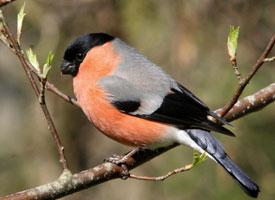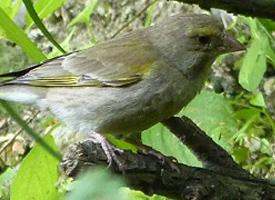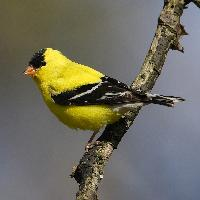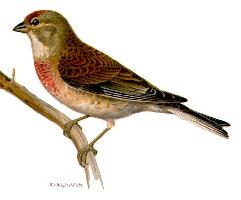
Súlyok és méretek
| Hossz | 17-tól 19-ig cm |
|---|---|
| Súly | 25 g |
| Szárnyfesztávolság | 27 cm |
Állatleírás
The Eurasian bullfinch, scientifically known as Pyrrhula pyrrhula, is a small but robust bird that graces the temperate regions of Europe and Asia with its presence. This species belongs to the finch family, characterized by its stocky build, short neck, and relatively large head, giving it a distinctive and charming appearance. One of the most striking features of the Eurasian bullfinch is its vibrant plumage, which exhibits sexual dimorphism, meaning males and females sport different colors.Males boast a brilliant rosy-red breast and cheeks, which contrast sharply with their black cap, wings, and tail. The back is a soft, dove grey, and the rump is white, creating a striking visual display. Females, on the other hand, have a more subdued color palette, featuring greyish-brown tones instead of the vivid red seen in males, yet they maintain the same black cap and white rump, which provides a subtle elegance to their appearance.
Juvenile Eurasian bullfinches have a more muted coloration compared to adults, which serves as camouflage against predators. As they mature, their feathers gain the rich colors that signify their sex.
Eurasian bullfinches are relatively small, measuring about 15 to 17 centimeters in length and weighing between 20 to 36 grams. Despite their small size, they have a powerful and thick bill, perfectly adapted for their primary diet of seeds. During the spring and summer, their diet expands to include buds of fruit trees, which unfortunately makes them less popular among orchard owners, as they can cause significant damage to fruit crops.
These birds are known for their shy and reserved nature, often preferring the quiet solitude of dense forests and woodland edges. However, during the winter, they may venture closer to human habitation, attracted by garden feeders offering seeds.
The call of the Eurasian bullfinch is a soft and mournful 'peu', and their song, though rarely heard, is a quiet and melancholic warble, adding an ethereal quality to their already elusive nature.
Breeding season for the Eurasian bullfinch begins in late April or May. They are monogamous birds, forming strong pair bonds that can last a lifetime. Nests are carefully constructed by the female, made of twigs and moss, and placed in the dense branches of trees and shrubs. Typically, the female lays 4 to 5 eggs, which she incubates for around 12 to 14 days. Both parents are involved in feeding the chicks, which fledge about 15 to 20 days after hatching.
The Eurasian bullfinch has a wide range but faces threats from habitat loss and the illegal pet trade, due to their striking appearance and unique vocalizations. Despite these challenges, they are currently listed as Least Concern by the International Union for Conservation of Nature (IUCN), indicating a stable population across their range.
In folklore and culture, the Eurasian bullfinch is often associated with winter and hardship, possibly due to its increased visibility near human settlements during the colder months, and its plaintive call. However, to many birdwatchers and nature enthusiasts, the sight of a Eurasian bullfinch is a delightful spectacle, a symbol of the enduring charm and mystery of the natural world.
Hasonló állatok
Új állatfotók
Top 10 állat
- Dolphin gull (Leucophaeus scoresbii)
- Diana monkey (Cercopithecus diana)
- Moustached guenon (Cercopithecus cephus)
- Galápagos tortoise (Geochelone nigra complex)
- Japanese macaque (Macaca fuscata)
- Stone loach (Barbatula barbatula)
- Greek tortoise (Testudo graeca)
- Russian tortoise (Testudo horsfieldii)
- Common flying dragon (Draco volans)
- Galápagos penguin (Spheniscus mendiculus)


